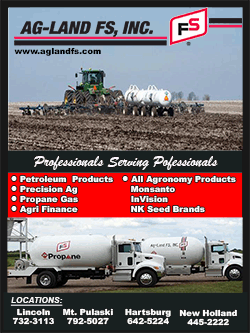|

France
bans crop pesticide metam sodium after people fall ill
 Send a link to a friend
Send a link to a friend
[November 06, 2018]
PARIS (Reuters) - France's health safety
watchdog Anses ordered a ban on products containing metam sodium, widely
used in vegetable farming, on Monday after several people fell ill,
saying it poses a risk to human health and the environment.
|
|
 The discovery of respiratory intoxications in recent weeks among
farmers or farm neighbors following the use of metam sodium-based
products in western France had prompted the government to
temporarily ban its use pending an Anses opinion. The discovery of respiratory intoxications in recent weeks among
farmers or farm neighbors following the use of metam sodium-based
products in western France had prompted the government to
temporarily ban its use pending an Anses opinion.
"After reassessment, Anses concludes that all uses represent a risk
to human health and the environment. Anses has just notified
producers of its intention to withdraw the marketing authorizations
for all metam sodium products," the watchdog said in a statement.
In 2004, the U.S. Environmental Protection Agency considered metam
sodium as a "probable human carcinogen".

Still, metam sodium is among the most widely used agricultural
pesticides in the United States.
In France it can be found in five products, made by Taminco, a
subsidiary of Eastman Chemical, Arysta Lifescience, recently
acquired by India's UPL, Spain's Lainco and Compo Expert, purchased
this year by Grupa Azoty, an Anses website shows.
Officials referred to four cases of intoxication linked to metam
sodium in the Maine-et-Loire and Finistere departments but local
media reported a total of 70 cases.
[to top of second column] |

France's largest farm union, the FNSEA, condemned the decision.
"The decision to ban metam sodium was taken even before finding an
alternative to replace it, leaving farmers without solutions," FNSEA
chairwoman Christiane Lambert said on Twitter.
Nearly 700 tonnes of metam sodium are used each year in France to
fight fungi and worms, mainly on plants such as corn salads and
tomatoes.
Although it is applied on small areas on fields or in greenhouses,
these products need to be used in large quantities to be efficient,
with doses used at between 300 and 1200 liters per hectare, Anses
said.
(Reporting by Sybille de La Hamaide; Editing by Susan Fenton)
[© 2018 Thomson Reuters. All rights
reserved.] Copyright 2018 Reuters. All rights reserved. This material may not be published,
broadcast, rewritten or redistributed.
Thompson Reuters is solely responsible for this content.
 |